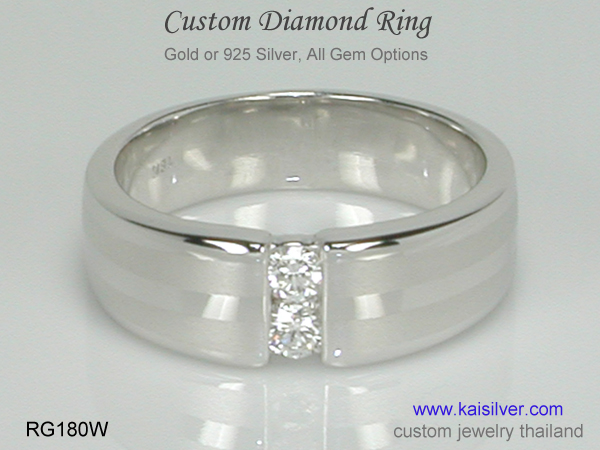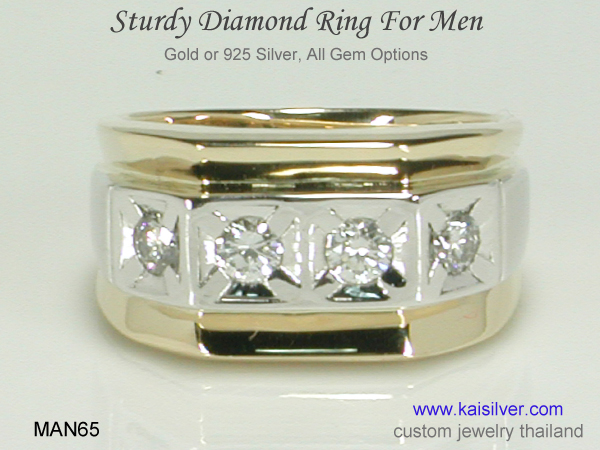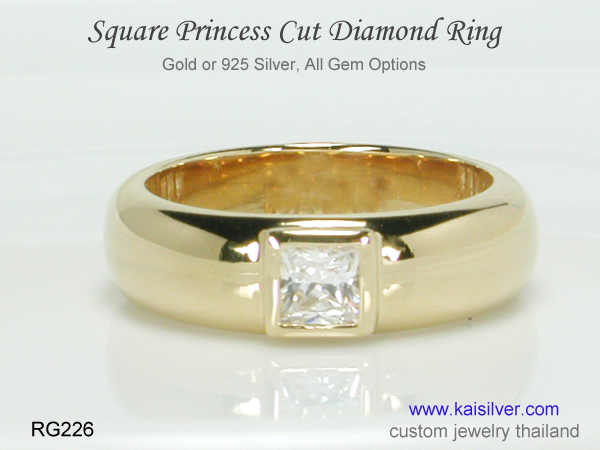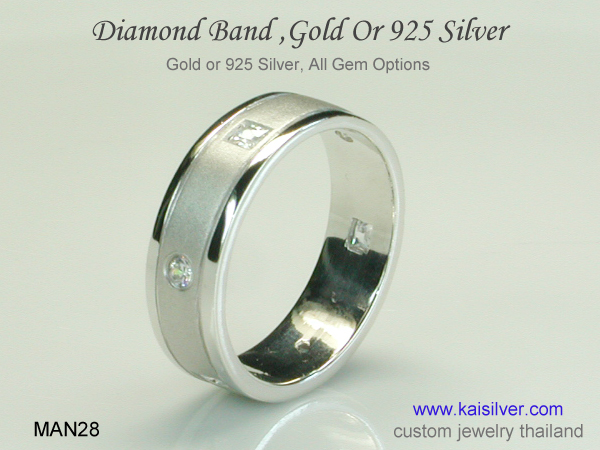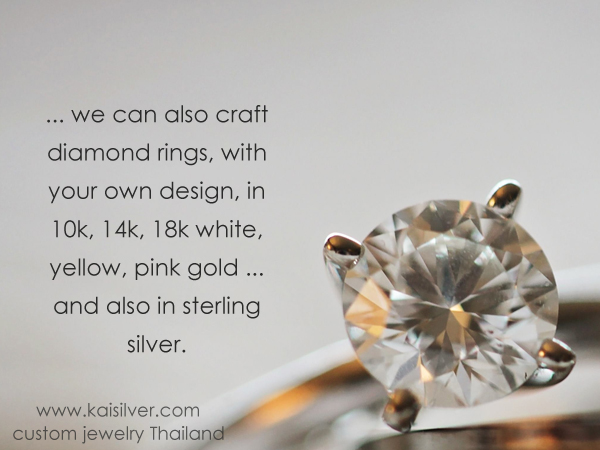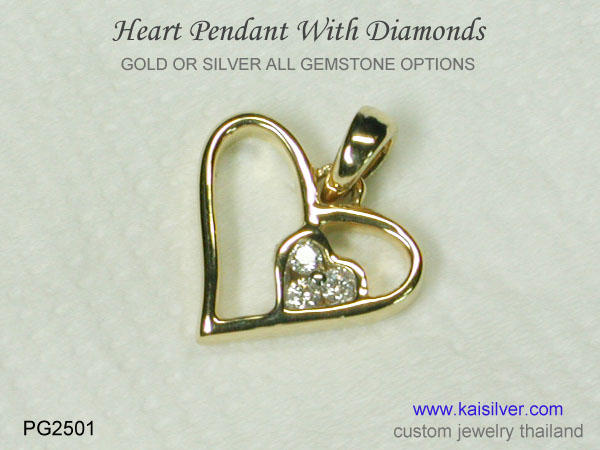What Are Certified Diamonds
Given the fact that natural diamonds are expensive, buyers prefer to have some sort of assurance regarding the value and authenticity of the glittering stone. Diamond experts at Kaisilver, have this to say about diamond certification. In their words, '.... diamond buyers would like to ensure that, the diamonds that they buy are natural and not, synthetics or fakes. The 4C parameters (color, clarity, carat and cut) of a diamond are extremely standardized. The objective of getting a diamond certified is to get an accurate and unbiased assessment of a diamond ....'.
We need to make one clarification about certified diamonds before moving ahead. It is not necessary for every certified diamond to be natural - the certificate issued during diamond certification, should clearly specify whether the diamond being certified is natural or lab created. Recent years have seen the emergence of lab created diamonds, these are not natural but man made diamonds. While the equipment used to make lab diamonds might be sophisticated and the technics not known to many, the fact is that lab diamonds are made by man and not by mother nature.
It is possible to get a natural diamond or a lab diamond certified, even top gem and diamond testing labs like the GIA (Gemological Institute of America), offer testing services for both lab and natural diamonds. Interestingly DeBeers once the holy home of fine natural diamonds, is now involved in the manufacture and trade of lab created diamonds. DeBeers today has commercial interests in both natural and lab diamonds. Important to understand that both natural and certified diamonds, are certified based on the same parameters - essentially the 4Cs of the diamond. The diamond certificate should clearly mention if the tested diamond is natural or a lab diamond.
What Are 4Cs Of A Diamond
The 4Cs a diamond are color, clarity, carat and cut. The parameters to describe the 4Cs of a diamond, have been very objectively define - this at a global level. Objectively assessing the color, cut, clarity and carat (weight) of a diamond - is the basis of diamond certification. Repeating again that, both natural and lab created diamonds are certified based on the same 4C standards.
MORE ON CERTIFIED DIAMONDS
There are more than a 100 diamond testing labs offering diamond certification. It is only a handful (below 10) of these labs, that are globally recognized. In conventional diamond trade, certifying a diamond is an exception rather than a rule. Sellers who do offer certified diamonds for sale, charge a substantial premium for the stones. It is important to understand that, the premium charged for certified diamonds, clearly exceeds the cost of getting the certification done. If you had to step back and consider, who exactly benefits from diamond certification - it would become clear that both buyers and sellers gain by the process of certification. Testing labs often provide varying degrees of information on the certificate however, it is advisable to ensure that certified diamonds come with the following information.
Diamond Certificates Should Ideally Contain:
- A unique identification number that, will not be repeated for other certificates.
- The 4C parameters of the tested diamond - color, clarity, cut and carat.
- The precise dimensions of the stone including, the thickness of the diamond.
- The fact whether the certified diamond is natural or synthetic.
- The type of cut applied to the diamond and also, the quality of the cut.
- Services are generally available where, the certification number is microscopically lasered on the diamond.
- The treatment if any, applied to the diamond. This is another factor that affects the price of the stone.
Kaisilver has something to say about synthetic diamonds, '... the diamond industry is a bit confused when it comes to tackling the issue of synthetic diamonds. These stones are factory made and not natural, the process begins by putting a small chip (piece) of natural diamond into a sophisticated piece of equipment. These diamonds have been around for quite some time but, have been recently promoted by tremendous market hype ...'. Keep in mind that the terms synthetic and lab diamonds could be used interchangeably.
The confusion became a bit more severe when, GIA announced that it would be extending its diamond testing services, to include synthetic (lab) diamonds. Other testing labs have followed suite and so, we now have certified diamonds that are synthetic and not natural. This is precisely why a certified diamond would need to have a clear indication on the certificate, classifying the stone as natural or lab created. DeBeers has always been a big name in the natural diamond sector, the company has now clearly expressed commercial interest in lab diamonds. This both in the manufacturing and trading aspects of lab diamonds.
And who benefits from diamond certification, while it might appear that buyers are the only beneficiaries, a little thought will reveal a different story. International diamond markets have been showing signs of stagnation, anything that will boost buyer confidence should be welcomed. A significant portion of diamond lovers, are afraid of receiving fake diamonds or paying a high price for overstated 4C parameters. Dealing in certified diamonds provided by reputed testing laboratories, will deliver a win-win situation for both buyers and sellers.
We asked the Kaisilver team why, the certification of diamonds is not being made mandatory. The answer was quite straightforward, '... by creating an exclusive status for certified diamonds, sellers are able to make much higher profit margins. Selling diamonds that are not certified, diamond sellers can easily over assess the 4C parameters of a stone. Bringing change in the diamond industry can be a major challenge, technology might have the answer ...'.
COST OF CERTIFICATION
Fair to say that certified diamonds in general, carry a premium on price. There are a number of labs offering diamond testing and certification services. In general the cost of certification is based on the lab, the features required to be certified and the size of the diamond - size defined by the carat weight of the diamond.
Expect to pay anything from US$50 to US$250 for a 1 to 3 carat diamond. The price would depend on the testing lab that you choose. When buying a certified diamond remember that, the premium often attached to certified diamonds, far exceeds the cost of certification.
SUMMARY
We have provided essential details about certified diamonds without, getting into confusing jargon in this report. The prime points are that, both natural and lab diamonds can be certified. The cost of certification can vary depending on the lab that does the certification process. The accuracy of diamond certification would depend on how objectively the 4Cs of a diamond (clarity, carat, cut and color) are assessed.
WHO IS KAISILVER
The leading online high end custom jewelry provider, Kaisilver today serves over 12,000 style and quality conscious clients across 15 nations. We craft all types of custom jewelry including rings, pendants, bracelets, bangles, earrings and cufflinks in gold or silver. A team of superbly skilled artisans aand gem cutters in Thailand, works on all Kaisilver jewelry orders. The same degree of attention to detail and importance is given to both gold and silver jewelry. This ensures that the same superior standards are maintained for both, gold and silver jewelry. Kaisilver places no restriction on design (could be yours or ours), gemstone (not restricted to what is mentioned on the websites) and metal (gold or silver). Contact the Kaisilver team of experts at sales@kaisilver.com if you have any queries or requirements, related to gems and jewelry.
